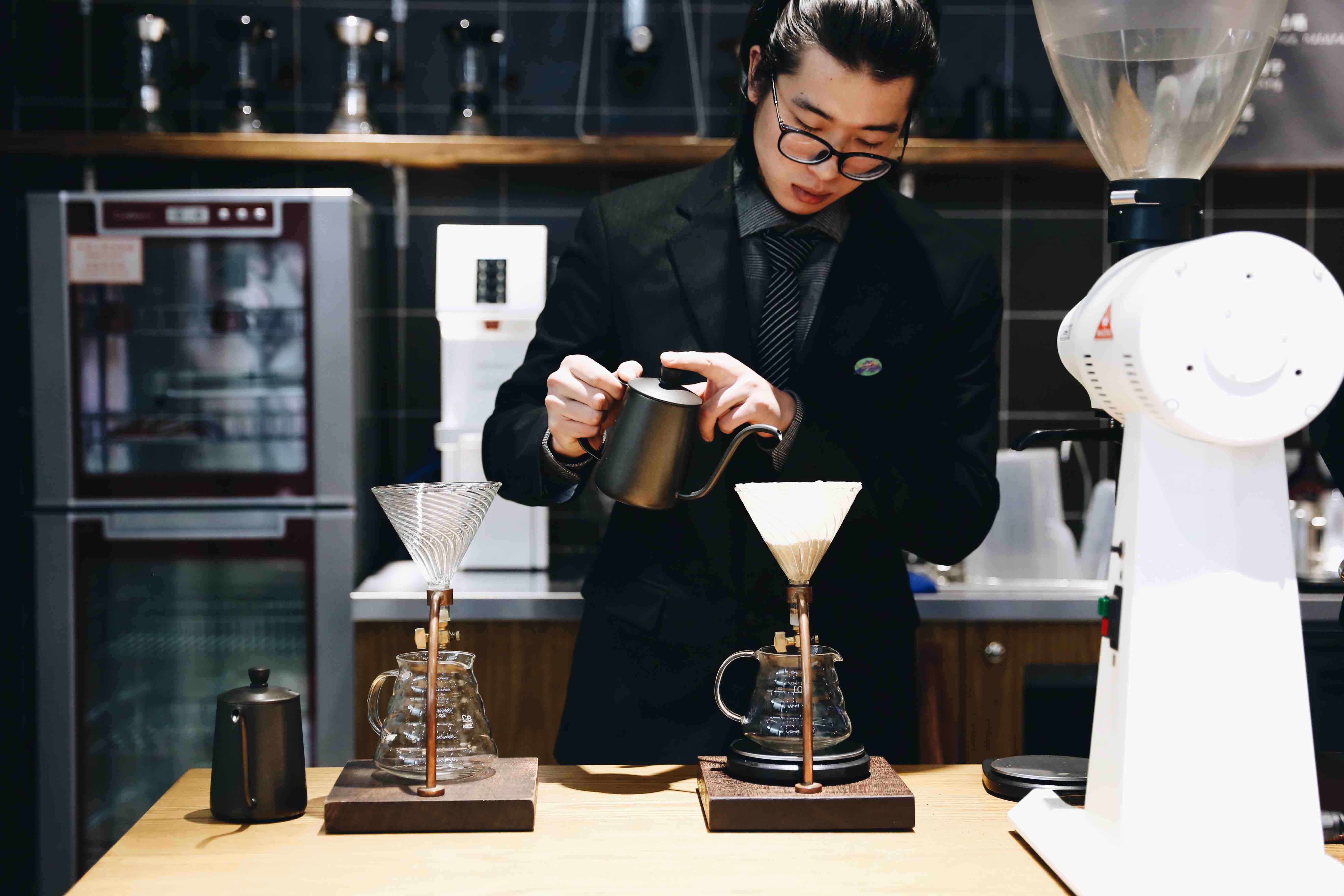RIMINI, Italy – It’s Cong Yuan (PICTURE), 22 years old from Shanghai, the first of the ten participants of Barista & Farmer, the only international talent show that glorifies the production chain of the quality coffee.
The fourth event celebrating the culture and excellence of coffee worldwide is to take place in 2018 in Colombia, the world’s third largest coffee producer.
Thanks to the newborn collaboration with World Coffee Events (WCE), Yuan was chosen among all those that, last March, submitted their candidacy during the HOTELEX event in Shangai
Yuan will be part of a group of ten baristas who will have the chance to live for ten das like the coffee producers in an origin country.
The format was created by Francesco Sanapo, three-times italian barista champion, organized by Italian Exhibition Group and SIGEP – International Exhibition of Artisan Gelato, Confectionery, Pastry and Bakery Production, with the patronage of the Speciality Coffee Association (SCA).
Main Sponsor is Lavazza which, trough its foundation, is developing in Colombia, in Mesetas, Lejania and San Juan de Arama, important sustainability projects in order to offer to coffee producers the tools to manage the effects of the climate change and to relocate the families of the producers in the territories that, in the last decades, have been hit by deep social crisis.
Applications are open in the casting area of the internet site http://www.baristafarmer.com/casting2/. All that is takes is to record a motivational video in order to get a chance to be selected and become one of the ten baristas that will fly to Colombia.
The participants in Barista & Farmer will be involved in a comprehensive project that starts with the coffee plantation harvests, includes all the stages of coffee production and the range of technologies used and ends with coffee tasting opportunities and a look at the variety of ways coffee is enjoyed.
They will attend the Barista & Farmer Academy, a special multidisciplinary school where they will follow SCA training modules on agronomy, botany, raw coffee, coffee roasting and coffee extraction under the direction of Alberto Polojac, along with a large number of other experts with considerable international experience. Work and learning will be interspersed with opportunities for fun and relaxation, with themed games and competitions.
The finalists will be filmed and the videos will be broadcast on www.baristafarmer.com and the talent show’s social networks. A documentary will be made about the event (each year the show is filmed in a different artistic style. See the event’s YouTube channel for the latest documentary).
A short interview with Cong Yuan
Age 22 years old; residence: Shanghai (China)
What does it mean to be a barista in China?
Obviously, to be a barista in China, you have to adjust the coffee grinder in the morning, and then drink a lot of coffee, especially espresso, in order to offer a good cup of coffee to the customers. Sometimes you have to tell to the customers the coffee’s information (including origin/ flavor/ processing/ roast) when they buy it. It’s kind of sharing stories with your lovely guests, educating them about how to make a good coffee, or about the country of origin. I think sharing coffee knowledge is pretty interesting, also in this way you can build the relationship with your coffee drinkers easily.
3 differences between the chinese coffee culture and the european one
Quantity: In Europe there are much more people who are accustomed in drinking coffee every morning than people drink coffee in china. In china elder people don’t have the custom of drinking instead of drinking tea more at coffee shops. But the quantity of coffee drinker is growing quickly especially young people accept to drink coffee.
Cafe Opening Times: Usually, in China, most of the coffee shops start to sell coffee at around 9:30 am and close at 9 pm. It’s quite interesting to know that chinese people rarely go to coffee shops in the morning, instead we go in the afternoon. However, in Europe, the standard opening time is usually 7am-5pm, people are always crowding at coffee shops in the morning.
Price: The average price of buying a cup of coffee is around 25RMB, The average income of holding a normal job is around 4000RMB in Shanghai. So it doesn’t balance, even they want to drink coffee, because they can’t afford it. Compared to Europe, buying a cup of coffee is cheaper than here in China.
I firmly believe that China will be the biggest coffee consumption country in the next 10 years, if we teach more people how to make coffee correctly.


















